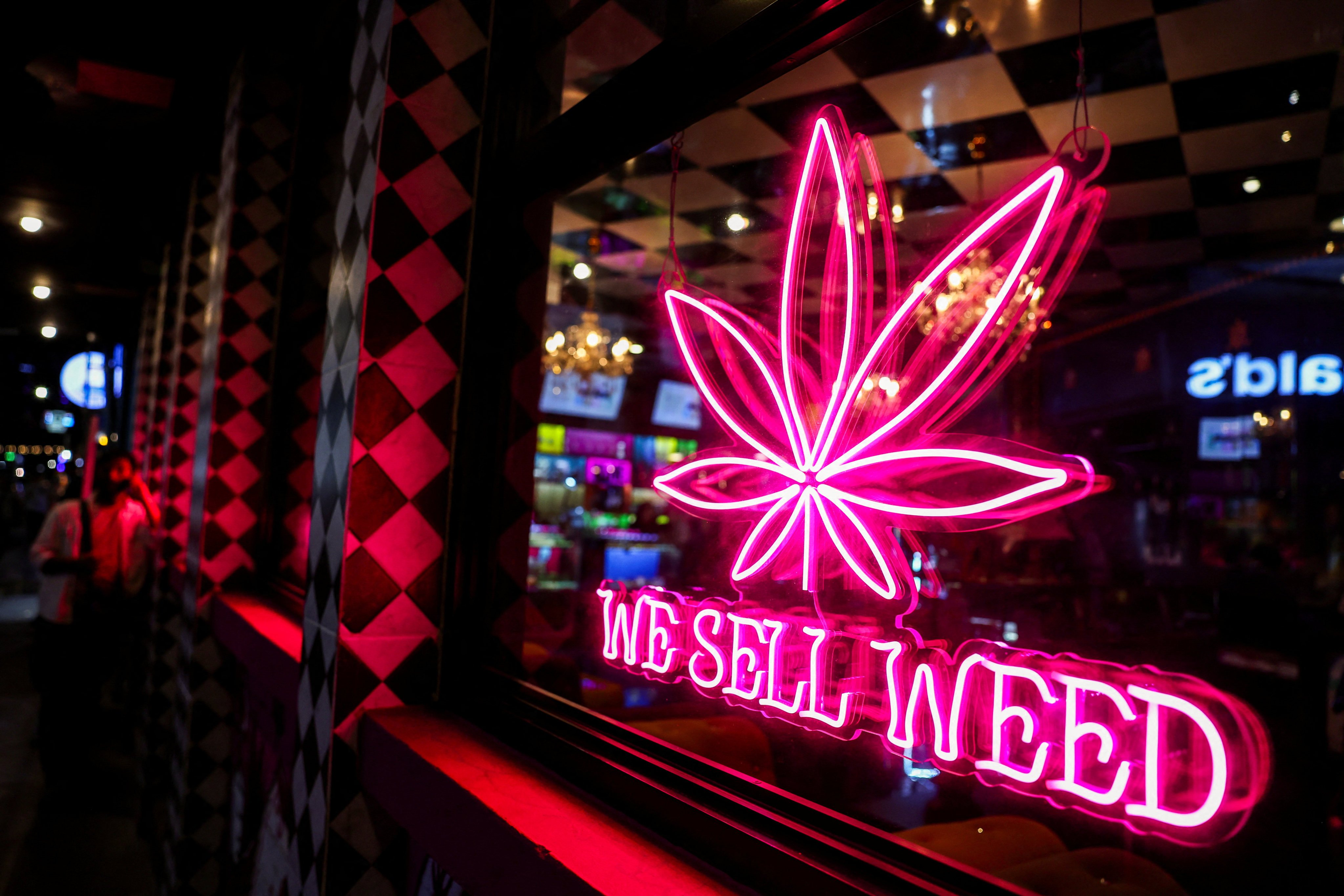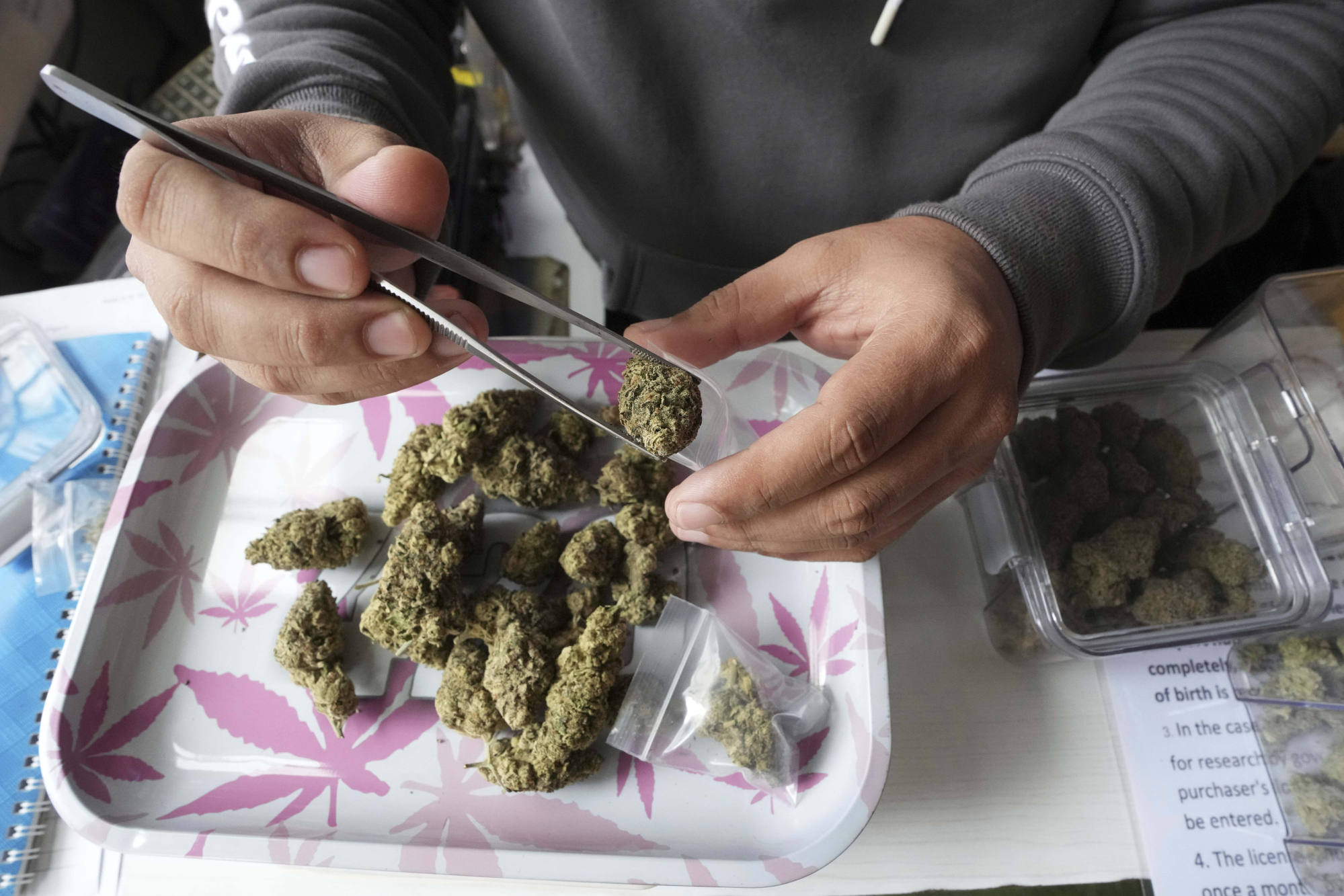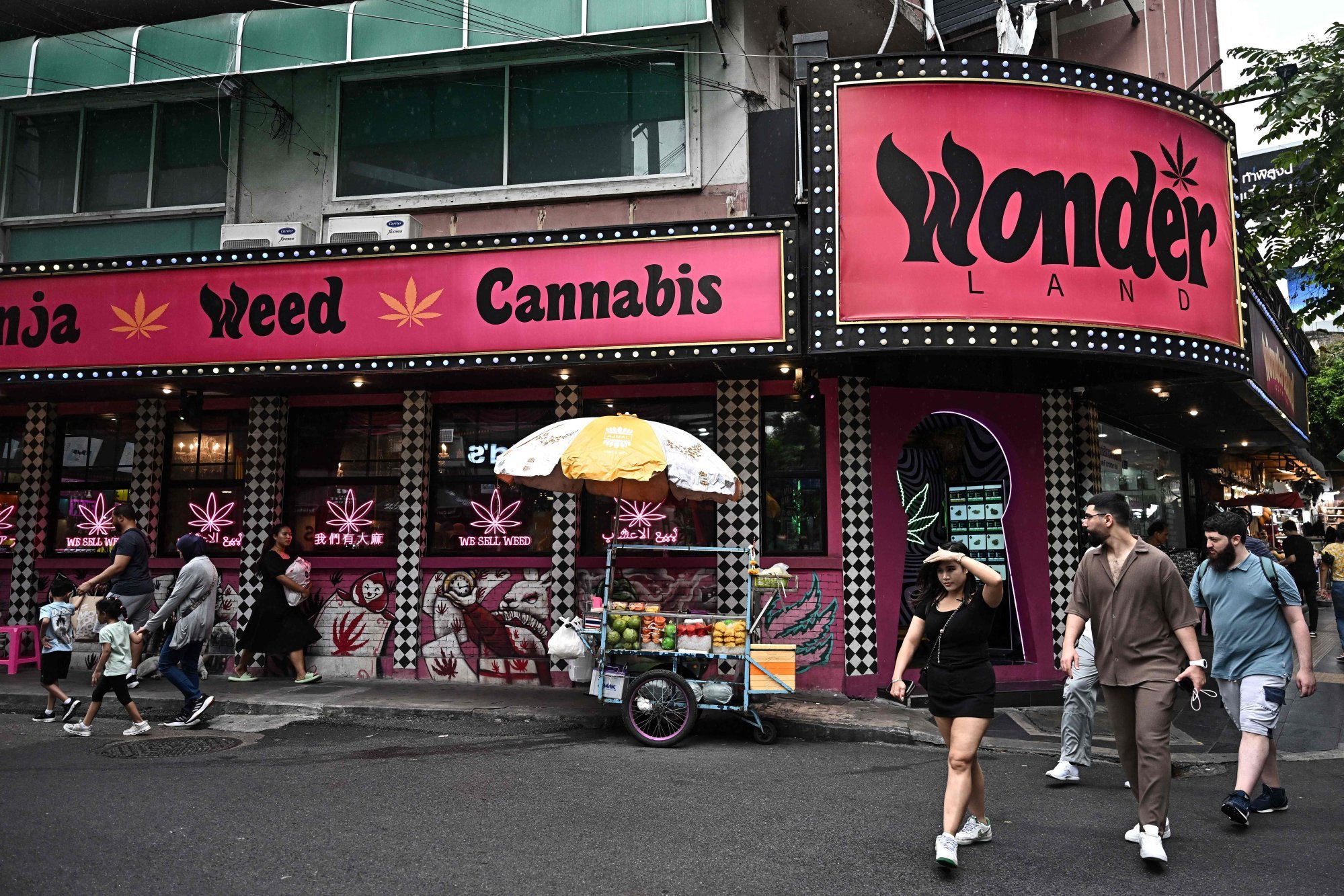Thailand to require cannabis shops to convert into clinics staffed by doctors
Officials say only around 2,000 of the country’s 18,000 marijuana dispensaries are expected to stay open after the new rules go into effect

Thailand is poised to close most of its cannabis shops by the end of the year under sweeping new rules requiring retailers to operate as licensed medical clinics with on-site doctors – a move that could roll back much of the country’s brief experiment with decriminalised marijuana.
The new regulations – set to be enforced by the end of the year – will leave around 2,000 of Thailand’s estimated 18,000 cannabis shops in operation, a Ministry of Public Health official said on Tuesday.
That is because most shops currently operating will not be able to meet the strict new requirements, said Somlerk Jeungsmarn, chief of the Department of Thai Traditional and Alternative Medicine (DTAM).
The new rules will require every cannabis outlet to employ an approved resident doctor who can issue prescriptions for cannabis as a controlled herbal substance. The products must also be sourced from certified suppliers and tested for contaminants such as heavy metals, pesticides and fungi, according to reporting by the Bangkok Post.

Cannabis was officially designated a “controlled herb” in June, under an order signed by Public Health Minister Somsak Thepsuthin. The reclassification means the plant can now only be used with a licensed medical prescription, and all professionals authorised to prescribe it must undergo training approved by the health ministry.
“Until enforcement begins, they [retailers] will use the prescription for controlled herbs instead, and the professionals performing this task must be trained by the department,” said Somruek Chungsaman, director-general of the DTAM.
In June, Thai authorities introduced a new prescription form that only allows licensed professionals from seven fields – including doctors, dentists, pharmacists and traditional healers – to prescribe cannabis. The form requires detailed records of symptoms, dosage and treatment duration.
To support the roll-out, the first 1,000 traditional medicine doctors are undergoing training on how to issue cannabis prescriptions in line with the new guidelines and are expected to begin prescribing by July 16, according to The Nation. Cannabis shop staff will begin their own training the following day, with some 100,000 participants expected.
Officials have already begun a compliance sweep of existing businesses. Nearly 1,600 cannabis shops have reportedly been inspected so far, resulting in 82 licence suspensions and 322 closures.
Authorities have also introduced new digital infrastructure to support enforcement. A national “Cannabis Prescription” system was piloted on Wednesday with 50 patients, and officials are developing a public-facing platform to help people locate authorised cannabis-prescribing doctors.
The government has defended the crackdown as a necessary public health measure amid a surge in cannabis-related complaints. Thanakrit Jit-areerat, secretary to the Minister of Public Health, reported that the number of complaints had increased tenfold, affecting around 1.5 million people. He specifically pointed to widespread cannabis use among minors as a chief concern.

Although Somsak has voiced support for eventually reclassifying cannabis as a narcotic, he acknowledged on July 4 that there was no timetable for such a move. “Declaring cannabis a narcotic immediately would impact 18,000 businesses,” he said. “We must act carefully. The government doesn’t want the public to suffer.”
Authorities signalled their hardening stance last week by ordering a nationwide crackdown on unregulated cannabis-infused food and drink vendors. The directive followed the hospitalisation of a two-year-old girl who consumed a cannabis-laced gummy.
Unhandled type: inline-plus-widget {“type”:”inline-plus-widget”}
The shift marks a stark reversal for Thailand, which in 2022 became the first country in Asia to decriminalise cannabis. The legalisation spurred rapid growth in a fledgling industry once projected to be worth as much as US$1.2 billion by 2025, with many shops opening in tourist-heavy areas.